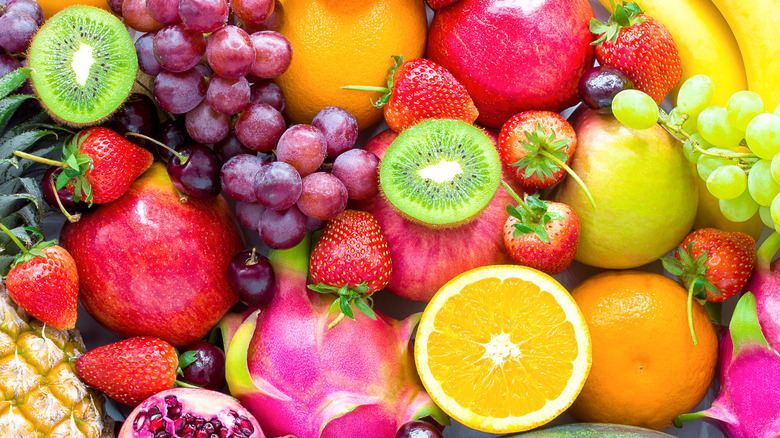How Eating Nature's Candy Can Boost Our Mental Well-Being
The U.S. Department of Agriculture recommends consuming an average of about two cups of fruit per day, depending on your age. A cup of fruit could include a banana, a cup of blueberries, or seven slices of mango. Although these fruits are often avoided on the keto diet, the fiber and potassium in fruit are necessary for a balanced and healthy diet. Certain fruits, like grapes, can reduce buildup in your arteries, lower inflammation, and reduce blood pressure, according to a 2012 study in Advances in Nutrition. The polyphenols and fiber in apples help your cardiovascular system, according to a 2017 study in Trends in Food Science & Technology.
Although the benefits of fruit for your physical health are numerous, you might be surprised that diets rich in whole fruit might also be good for your mental health. A 2022 study in the British Journal of Nutrition surveyed more than 400 people and found that the more fruit they had in their diet, the lower their levels of depression. People who ate more fruit also reported a higher sense of well-being. People who ate savory snacks, such as chips, were more likely to report symptoms of anxiety.
Your diet and mental health are related
Other studies have found similar connections between diet and mental health. A 2020 systematic review in Nutrients found that taking in fruits and vegetables can make you feel more optimistic and empowered. They can also ward off psychological stress and depression.
Fruits and vegetables can also benefit you as you age. A 2018 study in Public Health Nutrition surveyed adults over 50 years old in non-Western countries, such as China, India, Ghana, and Russia. The more servings of fruits and vegetables these adults reported to have in their diet, the better they performed on cognitive tests. In fact, those who consumed more fruit said they also had a better quality of life.
Whether you eat food that's processed or raw, it can make a difference in your mental health. Eating raw fruits and vegetables each day can correspond with a higher degree of life meaning and purpose, according to a 2018 research article in Frontiers in Psychology. The top raw foods included apples, bananas, grapefruit, berries, and kiwifruit.
If you reach for processed convenience foods, they might be affecting your mental health. According to a 2022 study in Nutrients, people who choose ultra-processed food more frequently also reported symptoms of depression and anxiety. The study warned against choosing foods that have ingredients that can't be found in your kitchen. This includes anything that might enhance the food's color, taste, or texture or allow the food to have a longer shelf life.


